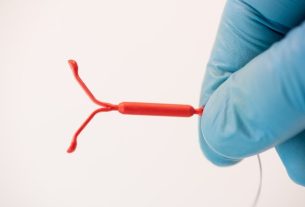Lack of libido can appear in women and men, and is usually caused by hormonal changes, stress, anxiety, relationship problems, chronic illnesses or even the use of medications, such as antidepressants or antihypertensives, for example.
Libido is the same as sexual desire, an important part of the human instinct, which can be influenced by physical or emotional issues, resulting in increased or decreased libido, depending on certain stages of life.
It is important to consult a gynecologist, in the case of women, or a urologist in the case of men, when a lack of libido affects the couple’s life and quality of life, so that the cause can be identified and the most appropriate treatment can be initiated, if necessary. .

Main causes of lack of libido
The decrease in libido can be temporary or long-lasting, the main causes being:
1. Psychological changes
Some psychological changes, such as stress, anxiety and depression, can directly interfere with mood and disposition, potentially causing a temporary lack of libido.
What to do: It is important to consult a psychologist and/or a psychiatrist so that the psychological condition can be diagnosed and the best treatment can be indicated, which can be done with psychotherapy and/or the use of medication. Additionally, you can use techniques that help promote relaxation and control stress and anxiety, such as practicing physical activities, meditating or drinking calming tea, however, they should not replace medical treatment. Check out the complete list of calming teas.
2. Emotional trauma
Emotional trauma, especially when related to sexual intercourse or sexual abuse, can cause a decrease in libido.
Furthermore, post-traumatic stress can cause a person to relive a traumatic event from the past or have intense memories, which can cause a lack of libido.
What to do: Treatment for emotional trauma or post-traumatic stress must be carried out by a psychologist and psychiatrist, through cognitive-behavioral therapy and/or the use of antidepressant medication. See how post-traumatic stress is treated.
3. Erectile dysfunction
Erectile dysfunction, also known as sexual impotence, is a man’s difficulty in having and/or maintaining an erection that allows for satisfactory sexual intercourse, which can cause a decrease in sexual desire, generally due to frustration.
Erectile dysfunction can occur in men at any age, and can be caused by the natural aging of the body or by drug consumption, smoking and excessive stress, or by health conditions, such as diabetes or kidney disease, for example.
What to do: It is important to consult a urologist to assess the cause of erectile dysfunction, and the use of medications such as sildenafil, tadalafil or vardenafil may be recommended. Furthermore, the doctor may refer you for treatment with a psychologist or psychiatrist, due to fears and insecurities that may exist and which are also contributing to the problem. Understand how erectile dysfunction is treated.
4. Problems in the relationship
Some problems in the relationship, such as fights or unresolved conflicts, distrust, lack of connection with the partner or communication problems, can affect the psychological and cause a decrease in sexual desire.
What to do: It is important to maintain dialogue and try to resolve conflicts, insecurities and communication problems. In some cases, couples therapy may be indicated to help establish a connection with the partner and trust, making healthy and pleasurable intimate contact possible.
5. Use of medications
Some medications, such as antidepressants, diuretics or antihypertensives, can decrease libido as a side effect, as they affect the part of the nervous system responsible for sexual desire or reduce blood flow to the intimate region.
Furthermore, in the case of women, contraceptives, by altering hormonal levels, can interfere with sexual desire and reduce libido.
In men, the use of prostate or hair loss medications, such as goserelin acetate, bicalutamide, flutamide, finasteride or dutasteride, can reduce testosterone levels in the body, which can affect sexual desire. Check out other remedies that can reduce libido.
What to do: It is important to consult the doctor who prescribed the medication so that it can be replaced with another that does not have the same side effect or the dose can be changed. Under no circumstances should you stop treatment on your own.
6. Postpartum
In the postpartum or breastfeeding phase, due to the normal hormonal changes during these phases, women may experience a decrease in sexual desire.
Furthermore, changes in the body and the tiredness of caring for the baby can affect the psychological aspect, which can reduce libido.
What to do: It is important that the couple has time alone to strengthen the emotional bond and physical contact, through affection and touch, without necessarily having to end in penetration. The important thing is that the couple respects the woman’s time, and the partner can also say words of affection, which can help the woman feel more desired. See other ways to increase female libido.
7. Menopause
Menopause is the moment marked by the end of a woman’s fertile age when the ovaries stop producing estrogen, which can reduce libido and reduce interest in intimate contact.
Additionally, due to decreased production of estrogen by the ovaries, some women may experience vaginal dryness and decreased production of mucus that keeps the vagina moist, which can cause pain or discomfort during sexual intercourse and lead to a lack of libido. . Check out other symptoms of menopause.
What to do: you should consult a gynecologist who may recommend hormone replacement therapy with tablets, or the use of vaginal estrogen in the form of a cream or gel, for example. These treatments should only be carried out if recommended by a gynecologist, as they are contraindicated for women at increased risk of breast, uterine or ovarian cancer, or thrombosis, for example. See how hormone replacement therapy is done.
8. Decreased testosterone levels in men
Testosterone is the main male hormone that is directly related to sexual desire and sperm production. When levels of this hormone are low, it can cause decreased libido, reduced sexual performance, tiredness and indisposition.
The decrease in testosterone is normal after the age of 50, when male andropause begins, which is similar to female menopause, but men continue to be fertile, with only a decrease in their fertility.
What to do: one should consult a urologist who may recommend testosterone replacement therapy. Furthermore, there are some natural ways to increase testosterone, such as practicing physical activity regularly, increasing the consumption of foods rich in zinc, vitamin A and D, getting a good night’s sleep and maintaining a healthy weight. See how to naturally increase testosterone.
9. Pain during sexual intercourse
Pain during sexual intercourse can cause a decrease in libido and reduced interest in intimate contact, due to pain and discomfort.
Some causes of pain during intercourse in women are endometriosis, allergies, hormonal changes or sexually transmitted infections. In men, it may be related to phimosis or inflammation in the prostate, for example. Check out other causes of pain in the relationship.
What to do: It is important to consult a gynecologist, in the case of women, or a urologist, in the case of men, so that the cause of the pain in the relationship can be identified and, thus, the most appropriate treatment can be initiated.
10. Lack of stimulation
In women, a lack of libido can also be caused by difficulty reaching orgasm or becoming aroused, which may be related to a lack of stimulation from their partner.
This is because the lack of stimulation can cause difficulty in producing natural lubricant, causing vaginal dryness and discomfort during intimate contact, as well as a loss of interest in sexual contact.
What to do: A good strategy in these cases is to increase the time for foreplay before intimate contact and explore the couple’s desires, in order to increase libido and facilitate vaginal lubrication. Find out what to do when a woman can’t get aroused.
11. Chronic illnesses
Chronic diseases, such as diabetes, high blood pressure, rheumatoid arthritis, cancer, coronary artery disease, neurological diseases or kidney or liver problems, can affect libido, decreasing sexual desire.
What to do: It is important for the couple to talk about the disease, expectations, feelings, and find ways to be intimate in a way that is comfortable for the person. In addition, the disease must be treated according to medical advice.

Sign up for our newsletter and stay up to date with exclusive news
that can transform your routine!
Warning: Undefined array key "title" in /home/storelat/public_html/wp-content/plugins/link-whisper-premium/templates/frontend/related-posts.php on line 12
Warning: Undefined array key "title_tag" in /home/storelat/public_html/wp-content/plugins/link-whisper-premium/templates/frontend/related-posts.php on line 13



